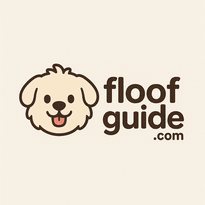Socializing Your Puppy Before Full Vaccination: A Guide
Bringing a new puppy home is exciting! But what do you do before they're fully vaccinated and protected from common diseases? Socialization is crucial during the first few months of a puppy's life, so it's important to get it right. Don't worry, you can still provide valuable experiences while keeping your pup safe.
Why Socialization Matters
Early socialization helps puppies develop into well-adjusted and confident adult dogs. Exposure to various sights, sounds, people, and other animals during this critical period shapes their behavior and reduces the likelihood of fear or aggression later in life. A well-socialized puppy is less likely to be anxious or reactive in new situations.
The Vaccination Schedule
Typically, puppies receive a series of vaccinations starting around 6-8 weeks old, with boosters every few weeks until they're about 16 weeks old. Your vet will determine the best vaccination schedule for your puppy based on their health and local disease risks. Full protection usually isn't achieved until a week or two after the final booster shot.
Safe Socialization Strategies
It's a myth that you must isolate your puppy completely until they are fully vaccinated. A balanced approach focuses on controlled and safe exposures.
At-Home Socialization
- Introduce them to household sounds: Play recordings of thunderstorms, fireworks, or traffic noise at low volumes. Reward your puppy for calm behavior.
- Variety of surfaces: Let your puppy walk on different surfaces like carpet, tile, grass, and wood floors. This helps them develop confidence and coordination.
- Handling exercises: Get your puppy used to being touched all over their body – paws, ears, mouth, and tail. This is important for grooming and vet visits.
- New Objects: Introduce them to different objects such as umbrellas, hats, and vacuum cleaners.
Controlled Interactions
- Puppy Classes (check requirements!): Enroll in a puppy socialization class run by a qualified trainer or veterinarian. These classes prioritize safety and ensure all puppies are appropriately vaccinated and healthy OR only allow puppies with one set of vaccinations at minimum.
- Known, Healthy Dogs: Arrange playdates with fully vaccinated, friendly adult dogs that you know and trust. Choose calm, gentle dogs that will not overwhelm your puppy.
- Friends and Family: Invite friends and family members to your home to meet your puppy. Encourage them to offer gentle petting and treats.
- Carry your puppy: Carry your puppy in a bag, carrier or your arms and go to dog-friendly stores to watch all of the sights and sounds. Give them treats as they observe.
Places to Avoid
Until your puppy is fully vaccinated, avoid high-risk areas where unvaccinated dogs might frequent. This includes:
- Dog parks
- Pet stores (unless carrying your puppy)
- Gravel areas
- Areas with high dog traffic, such as rest stops
Key Considerations
- Talk to Your Veterinarian: Your veterinarian is your best resource for advice tailored to your puppy's specific needs and local disease risks. Discuss your socialization plans with them.
- Observe Your Puppy's Body Language: Pay close attention to your puppy's body language during socialization experiences. If they show signs of fear or anxiety (e.g., tucked tail, flattened ears, lip licking, yawning), remove them from the situation immediately.
- Positive Reinforcement: Use positive reinforcement techniques, such as treats and praise, to reward your puppy for calm and confident behavior.
- Keep Interactions Short: Keep initial socialization experiences short and positive. Gradually increase the duration and intensity of interactions as your puppy becomes more comfortable.
Socializing your puppy before they are fully vaccinated requires a little extra planning and caution, but it's definitely achievable. By following these guidelines and working closely with your veterinarian, you can help your puppy grow into a well-adjusted and confident companion!

